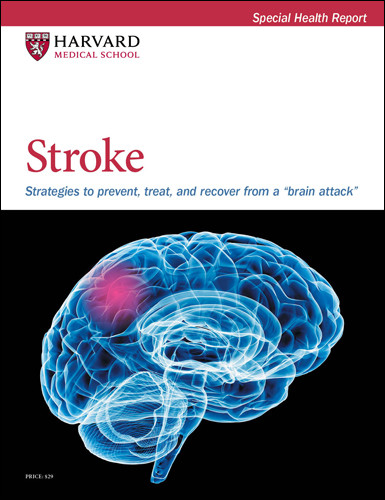Hot weather tied to increased odds of stroke
Research we're watching
- Reviewed by Christopher P. Cannon, MD, Editor in Chief, Harvard Heart Letter; Editorial Advisory Board Member, Harvard Health Publishing

High temperatures may leave people more vulnerable to stroke, according to a study in the February 2024 issue of JAMA Network Open.
The study included data from more than 82,000 people across China who were hospitalized for an ischemic stroke during the warm seasons from 2019 to 2021. (Ischemic strokes occur when blood supply to part of the brain is blocked or reduced, usually because of a blood clot.) By checking hourly temperature records for up to 24 hours before a person's stroke symptoms began, researchers found that as temperatures rose, so did the risk of stroke.
The risk was nearly twice as high when temperatures were around 92°F compared to when the temperature was 54°F. The risk was highest immediately after a person was exposed to high temperature and lasted for 10 hours. High temperatures may trigger dehydration, which can make the blood more viscous and more likely to clot. People at increased risk of stroke should "exercise with caution, reduce outdoor activities, and use air conditioning to protect themselves from high temperatures," according to the study authors.
Image: © Tomas Ragina/Getty Images
About the Author

Julie Corliss, Executive Editor, Harvard Heart Letter
About the Reviewer

Christopher P. Cannon, MD, Editor in Chief, Harvard Heart Letter; Editorial Advisory Board Member, Harvard Health Publishing
Disclaimer:
As a service to our readers, Harvard Health Publishing provides access to our library of archived content. Please note the date of last review or update on all articles.
No content on this site, regardless of date, should ever be used as a substitute for direct medical advice from your doctor or other qualified clinician.
















